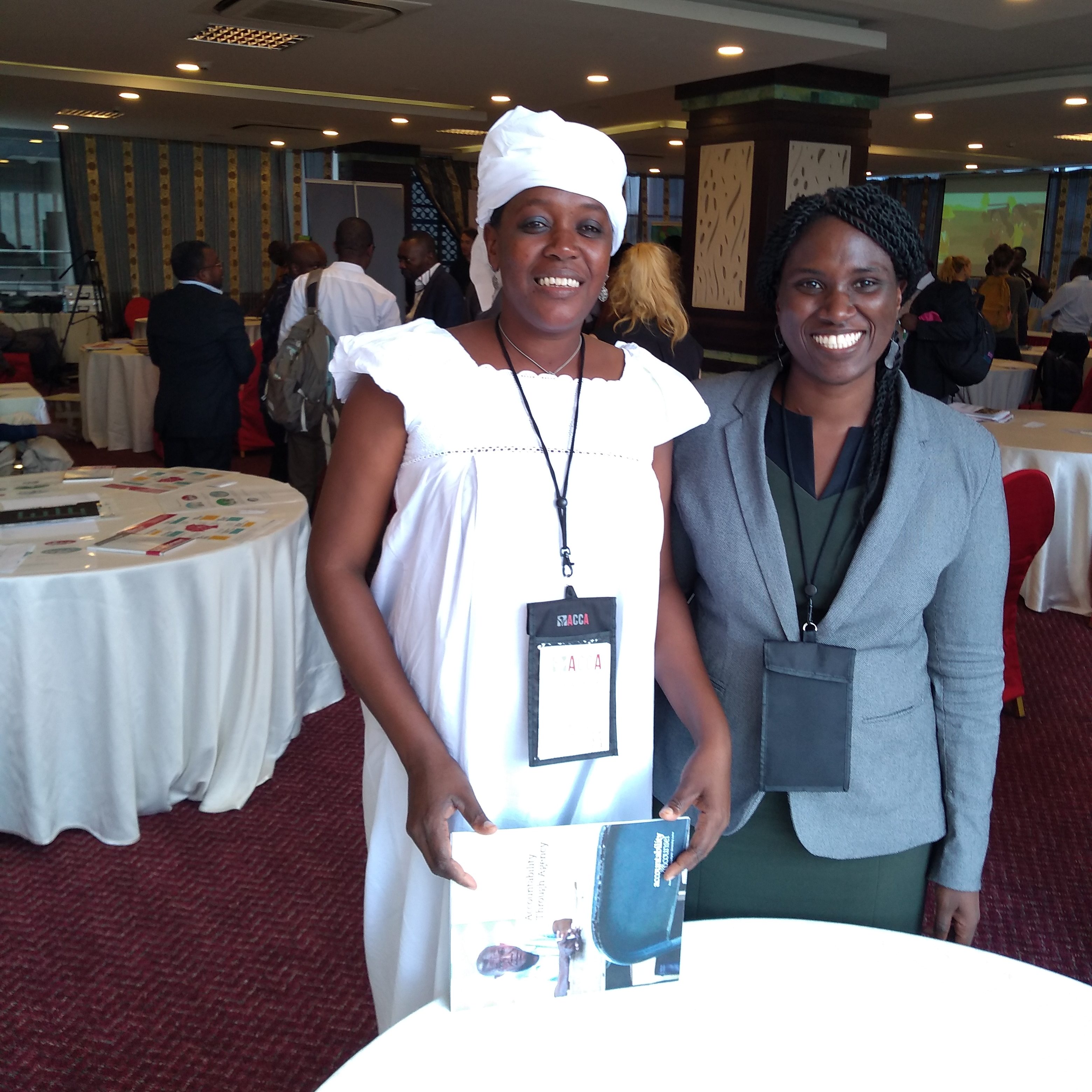African Development Bank (AfDB) | Independent Recourse Mechanism (IRM)
-
Overview
Accountability Counsel advocates for the AfDB’s Independent Review Mechanism (IRM) to be as effective as possible for communities seeking justice. This means that it must be independent, legitimate, fair, transparent, predictable, and accessible.
African Development Bank (AfDB)
Created In: 1964
Headquarters: Abidjan, Côte d’Ivoire
Member Countries: 81
Largest Shareholder: Nigeria
Mission: The overarching objective of the African Development Bank (AfDB) Group is to spur sustainable economic development and social progress in its regional member countries (RMCs), thus contributing to poverty reduction.
The Accountability Office: Independent Review Mechanism (IRM)
Established in: 2004
Functions: Compliance Review, Problem Solving/Mediation, Advisory
The African Development Bank (AfDB) is the parent organization of the AfDB Group, a regional development bank for Africa.
Accountability Counsel participated in the AfDB’s prior reviews of the IRM’s policies in 2009-2010 and 2013-2015.
The most recent review process began in December of 2019 concluded in September 2021. Due to the advocacy of Accountability Counsel and several African and global partners, the review resulted in a more accessible and effective IRM. Learn more about the review here.
-
Our Advocacy

Accountability Counsel’s Stephanie Amoako (r) with Aby Dia, Lumière Synergie pour le
Développement, in Nairobi.Accountability Counsel has been instrumental in pushing the IRM to operate according to best practices, including active participation in reviews of the accountability office’s policies. As a result of our advocacy, we have seen improvements to the IRM’s independence, accessibility, and effectiveness.
Along with our partners, we have continued to advocate for the IRM to fully implement its policy and improve operations, and for the AfDB to play a constructive role in the complaint process. In May of 2018, we were in Abidjan for the AfDB’s Civil Society Forum, where we engaged with the bank’s board members, staff, and accountability office to call for improvements in institutional accountability. Prior to forum, we met with over 40 civil society partners to develop strategies for future engagement with the AfDB and other financiers operating in Africa.
In November 2017, October 2018, and November 2019, Accountability Counsel participated in the annual African Coalition for Corporate Accountability (ACCA) General Assemblies in Pretoria, South Africa, Nairobi, Kenya, and Abidjan, Ivory Coast, respectively. ACCA is a coalition of organizations from African countries that supports African communities and individuals whose human rights are adversely impacted daily by the activities of corporations, both multinational and domestic. During the gatherings, we met with partners and stakeholders to share our work on accountability offices, including the AfDB’s IRM, and discuss strategies to hold corporations accountable for harms on the continent. Additional AC reflections on the 2018 the General Assembly can be found here.
In February 2019, we and 33 global partners sent joint recommendations to the AfDB’s Board of Directors, calling for the Board to ensure that the consultation process for the upcoming review of the IRM avoids the missteps of the 2014 IRM review, and is transparent, meaningful, and inclusive. In response, the AfDB committed to a participatory process that includes two rounds of public consultations on key documents.
After a significant delay, the review was finally launched in December 2019. An external consulting firm was hired to conduct the review, and in September 2020, the AfDB held the first public consultation on the review team’s report on the effectiveness of the IRM. Accountability Counsel and 53 partners from Africa and around the world submitted recommendations that agreed with most of the report’s findings and focused on removing barriers to accessing the IRM, restructuring the mechanism to its capacity and effectiveness, and ensuring independence from AfDB management to ensure a fair process for communities using the mechanism. Along with Lumière Synergie pour le Développement and Inclusive Development International, we also submitted recommendations to ensure that the AfDB has dedicated resources available to ensure remediation of harm.
On 22 December 2020, the AfDB launched its second public consultation on the review team’s report and updated procedures for the IRM. The revised procedures reflect several recommendations that we provided during the first round, including the removal of barriers to accessibility to the mechanism as well as increased equitability, including by allowing complainants to comment on proposed actions to address non-compliance. For the second consultation, AC and 51 civil society organizations called on the AfDB to fully implement all of the positive changes thus far and address remaining weaknesses in the AfDB’s framework.
In September 2021, the AfDB announced the results of the review, including a new name for the IRM (now known as the Independent Recourse Mechanism) and new IRM procedures. Due to our collective advocacy, the new IRM procedures enshrine a greater commitment to accessibility for project-affected communities and should result in a more effective complaints process.
As the new procedures are implemented, we will continue to work with partners to ensure that the AfDB effectively remedies harm stemming from its financing.
See here for more information on Accountability Counsel’s advocacy to the AfDB.
-
Past Advocacy
Examples of Past Advocacy Campaigns
-
Resources
African Development Bank (AfDB)
Created In: 1964
Headquarters: Abidjan, Côte d’Ivoire
Member Countries: 81
Largest Shareholder: Nigeria
Mission: The overarching objective of the African Development Bank (AfDB) Group is to spur sustainable economic development and social progress in its regional member countries (RMCs), thus contributing to poverty reduction.
The Accountability Office: Independent Review Mechanism (IRM)
Established in: 2004
Functions: Compliance Review, Problem Solving/Mediation, Advisory
Projects funded by the AfDB must follow the AfDB’s Integrated Safeguards System, which includes policies on environmental and social assessments, involuntary resettlement, labour, and biodiversity, among others.
The AfDB also has a policy on disclosure and access to information, which governs public access to information related to the AfDB’s operations and AfDB-funded projects.
The Accountability Office
The AfDB’s Independent Review Mechanism (IRM) applies to both private- and public-sector AfDB operations and has both compliance review and problem-solving functions. The IRM may choose to employ one function or the other, both (simultaneously or sequenced), or neither. The IRM is housed in the AfDB’s Compliance Review and Mediation Unit (CRMU), which evaluates the AfDB’s operations.
Submit a complaint to the AfDB’s IRM if:
- You and at least one other person are located in a country where an AfDB project is located; and
- Your rights or interests have been, or are threatened to be, directly, adversely, and materially affected by an AfDB project.
The IRM will review your complaint and either register the complaint, reject it, or request more information. Taking your preference into consideration, the IRM will decide whether a complaint will be dealt with as a problem-solving initiative or compliance review. The problem-solving process involves a dialogue or mediation between you, the bank, and other interested parties. A compliance review will ask whether the AfDB obeyed its policies in designing, implementing, and supervising the project.
If a compliance review is initiated, an IRM expert will conduct an investigation with support from the CRMU. After the review process is concluded, a report will be issued documenting the findings and any potential recommendations to remedy non-compliance. The CRMU will monitor any measures implemented as the result of either the compliance review or problem-solving process.
For more information, see our brochure on the IRM (with SOMO), our Accountability Resource Guide, or visit the IRM’s website.
-
Documents
Institutional Documents
2023 Integrated Safeguards System
2021 Independent Recourse Mechanism Operating Rules and Procedures
2015 Resolution on the Establishment of the IRM
2015 Revised Operating Rules and Procedures
Disclosure and Access to Information Policy
Policy Statement and Operational Safeguards
Key Documents by Release Date
Sep 2021 – the AfDB released new IRM Operating Rules and Procedures
Feb 2021 – AC and 51 CSOs submitted recommendations for the second round consultation for the IRM review, calling on the AfDB to fully implement all of the positive changes thus far and address remaining weaknesses in the AfDB’s framework. Our recommendations are also available in French and Arabic.
Nov 2020 – AC and 53 CSOs from Africa and around the world submitted recommendations for the first round consultation of the IRM review.
Nov 2020 – AC, Lumière Synergie pour le Développement, and Inclusive Development International submitted recommendations for an AfDB remedy fund during the first round consultation of the IRM review.
Feb 2019 – Accountability Counsel and partners sent joint recommendations to the AfDB Board of Directors, calling for a transparent, meaningful, and inclusive consultation process for the upcoming review of the IRM.
Apr 2015 – AfDB adopted a 2015 Resolution on the Establishment of the IRM and revised its Operating Rules and Procedures
Jan 2015 – AfDB Board of Directors approved the revised version of the Resolution establishing the IRM and its operating rules and procedures.
Oct 2014 – Accountability Counsel and partners submitted a joint letter to the AfDB regarding the inadequate public comment process and timeframe, and provided additional input to the proposed changes to the IRM policy.
Sep 2014 – After much pressure from civil society, AfDB publicly posted its proposed amendments to the IRM policy and allowed a short nineteen-day time frame for additional comments.
Aug 2014 – Accountability Counsel, and 12 partner organizations, submitted joint comments on the second review report of the IRM and the IRM policy. Accountability Counsel also endorsed additional comments prepared by the CSO Coalition on the ADB.
Jun 2014 – AfDB undertook its second review of the IRM. An independent consultant hired by the AfDB prepared a draft second review report with recommendations for improvements to the IRM.
Dec 2013 – AfDB released its Policy Statement and Operational Safeguards
Sep 2013 – Accountability Counsel and SOMO wrote this brochure on the IRM
May 2012 – AfDB released its Disclosure and Access to Information Policy
Oct 2009 – Accountability Counsel and partners submitted a letter to the AfDB with suggestions for the review of the IRM.
Sep 2009 – AfDB undertook its first review of the IRM. An independent consultant hired by the AfDB prepared a draft review report with recommendations for improvements to the IRM.
Related Media
20 July 2023 – CSOs Publish New Community Guide on Engaging with the African Development Bank, Accountability Counsel
11 May 2023 – AfDB’s New Safeguards Are Improved, but Fall Short on Remedy, Accountability Counsel
27 May 2022 – “Stop funding projects exacerbating climate change and human rights violations.” #AfDBAM2022 – Accra CSO Statement
20 Dec 2021 – Op-Ed: African Development Bank Restructures Its Accountability Office: What Does this Mean for African Communities?, Stephanie Amoako, Accountability Counsel, ACCA
4 Oct 2021 – African Development Bank Improves its Accountability Office to Better Serve Communities, Stephanie Amoako, Accountability Counsel
17 Feb 2021 – Review Team Recommends Important Reforms to the AfDB’s Accountability Framework; More is Needed to Ensure Remedy for Communities, Stephanie Amoako, Accountability Counsel
10 Dec 2020 – Nouveau rapport, Redevabilité en Afrique : Préjudices causés par les flux financiers internationaux et recommandations, Accountability Counsel et ACCA
10 Dec 2020 – New Report, Accountability in Africa, Examines Harm From International Financial Flows and Recommends Action, Accountability Counsel and ACCA
13 Nov 2020 – Accountability Counsel and Partners Advance Recommendations for Strengthened Accountability at the African Development Bank, Stephanie Amoako, Accountability Counsel
13 Nov 2019 – African Development Bank decides not to fund Kenya coal project, Alexander Winning, Reuters
2 Jul 2019 – Abidjan Meetings on Accountability in International Finance, Stephanie Amoako, Accountability Counsel
11 Dec 2018 – Protecting Communities’ Rights in Africa: Reflections on the 2018 ACCA General Assembly, Stephanie Amoako, Accountability Counsel in ACCA
24 May 2017 – Escalating Threats in Lamu, Kenya Interfere with Local Communities’ Right to Public Participation, Sarah Singh, Accountability Counsel
5 Oct 2015 – Communities in Lamu, Kenya Object to AfDB’s Role in Planned Coal Power Plant, Accountability Counsel


